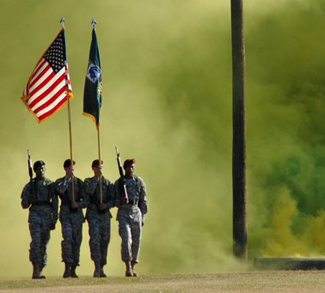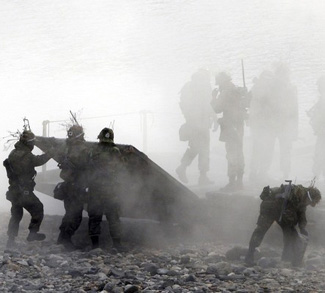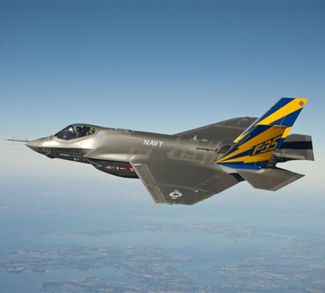FORECAST
Several articles published in the US media have raised alarm over what has been characterized as an emerging South American arms race. While it is true that numerous arms procurement agreements have been made, this alarm is reflective not of hostilities between South American countries but of US concern over its waning influence in the continent.
Political and economic domination of South America is longstanding US policy (See: “CIA in South America”). Latin America is rich in many natural resources but its significant oil wealth is the most strategically important. Mexico, Venezuela, Ecuador, Columbia and Brazil are all among the top oil exporters to the US, providing it with more oil than Middle Eastern countries (eia.doe.gov).
Consequently, US strategy is to control South American oil for domestic consumption and Middle Eastern oil to increase leverage with China and other oil importing nations. Significant profits for US oil companies are also at stake.
American influence in South America has steadily been declining, however. Since thwarting an attempted CIA-backed coup in 2002, Venezuelan President Hugo Chavez has been continuing to use the country’s oil revenues to fuel his populous Bolivar revolution, both within the country and throughout the region. He supports like-minded leaders including Evo Morales in Bolivia, Fidel Castro in Cuba and Daniel Ortega in Nicaragua.
So when Venezuela, in the name of defending itself against US aggression, increases its purchases of Russian arms (due to a US arms embargo), the establishment media takes note.
But claims that such action is sparking an arms race fail to recognize that, despite increases in Venezuelan military spending the power dynamic in the continent has not changed, Argentina, Columbia and Brazil’s overall military spending remains significantly higher than Venezuela’s.
Perhaps more important than relative military spending is the political context in which the spending takes place. There are few serious international disputes in South America and many historic border disagreements have been resolved in recent years. Other than historically cool relations between Peru and Chile and Columbia’s discontent over Venezuela’s passive support for Columbian leftist guerillas, relations are fairly strong.
Claims that an arms race has begun are unfounded but this fact is unlikely to silence the pro-Washington analysts from expressing their discontent with anti-Venezuelan spin.
SUMMARY OF EVENTS: January 14 – January 21, 2008
WORLD
European stocks fell following steep slides in Asian shares amid growing speculation the U.S. economy – a vital export market – could slide into a recession.
NORTH AMERICA
Canada
A training manual for Canadian diplomats lists the United States and Israel among countries that potentially torture or abuse prisoners.
SOUTH AMERICA
Increased defense spending by Venezuela, Brazil, and Ecuador, coupled with significant arms purchases by Chile and Colombia, may mark the start of an arms race in South America
EASTERN EUROPE
Poland
U.S. plans for a missile defense system in Poland and the Czech Republic may be delayed because Poland wants extra security guarantees by the United States against Russia.
Russia
Russian warships from the Northern and the Black Sea fleets will conduct joint maneuvers next week in the Atlantic Ocean, the Northern Fleet commander said.
THE MIDDLE EAST
Israel/Palestine
Israel locked down the Gaza Strip as Prime Minister Ehud Olmert vowed to keep up raids on gunmen in the Hamas-run territory.
Iran
The foreign ministers of the permanent members of the UN security council plus Germany will meet in Berlin next week to discuss a draft resolution for further sanctions against Iraq, the Financial Times Deutschland reported.
Russian energy giant Gazprom is planning to offer Tehran new prospects of oil and gas cooperation, Iran’s oil minister said. The parties identified oil and gas deposit exploration and development as priority areas for cooperation. This would include the energy-rich Southern Pars deposit.
A top US diplomat urged China on Thursday to back a new UN resolution against Iran over its nuclear programme, as Tehran’s top atomic negotiator arrived in Beijing to lobby against such a move.
Senior Pentagon officials used an off-the-record Pentagon briefing to turn the January 6 US-Iranian incident in the Strait of Hormuz into a sensational story demonstrating Iran’s military aggressiveness, a reconstruction of the events following the incident shows.
Iraq
The cultivation of opium poppies whose product is turned into heroin is spreading rapidly across Iraq.
SOUTH ASIA
Afghanistan
The United States will send an additional force of about 3,200 Marines to Afghanistan this spring to help NATO troops and Afghan security forces confront rising Taliban violence, according to the Pentagon.
Pakistan
Pakistani President Pervez Musharraf has said troops will be ordered to shoot anyone trying to disrupt general elections due on February 18.
A Pakistani security outpost near the border with Afghanistan has reportedly been abandoned by government troops, due to threats from pro-Taliban fighters.
Thailand
Thailand’s Supreme Court on Friday cleared one big hurdle on the way towards the formation of a new coalition government after it endorsed the validity of the December election and threw out a case that might have led to disbandment of the election winner People Power Party (PPP).
EAST ASIA
China
A Chinese attack submarine and destroyer shadowed U.S. warships in November in the Taiwan Strait, sparking a 28-hour standoff that brought the group to a battle-ready halt in the tense waters, a report in a Taiwan daily said
AFRICA
Kenya
Kenyan police fired live rounds and tear gas in a second straight day of deadly clashes with demonstrators opposed to the reelection of President Mwai Kibaki.



